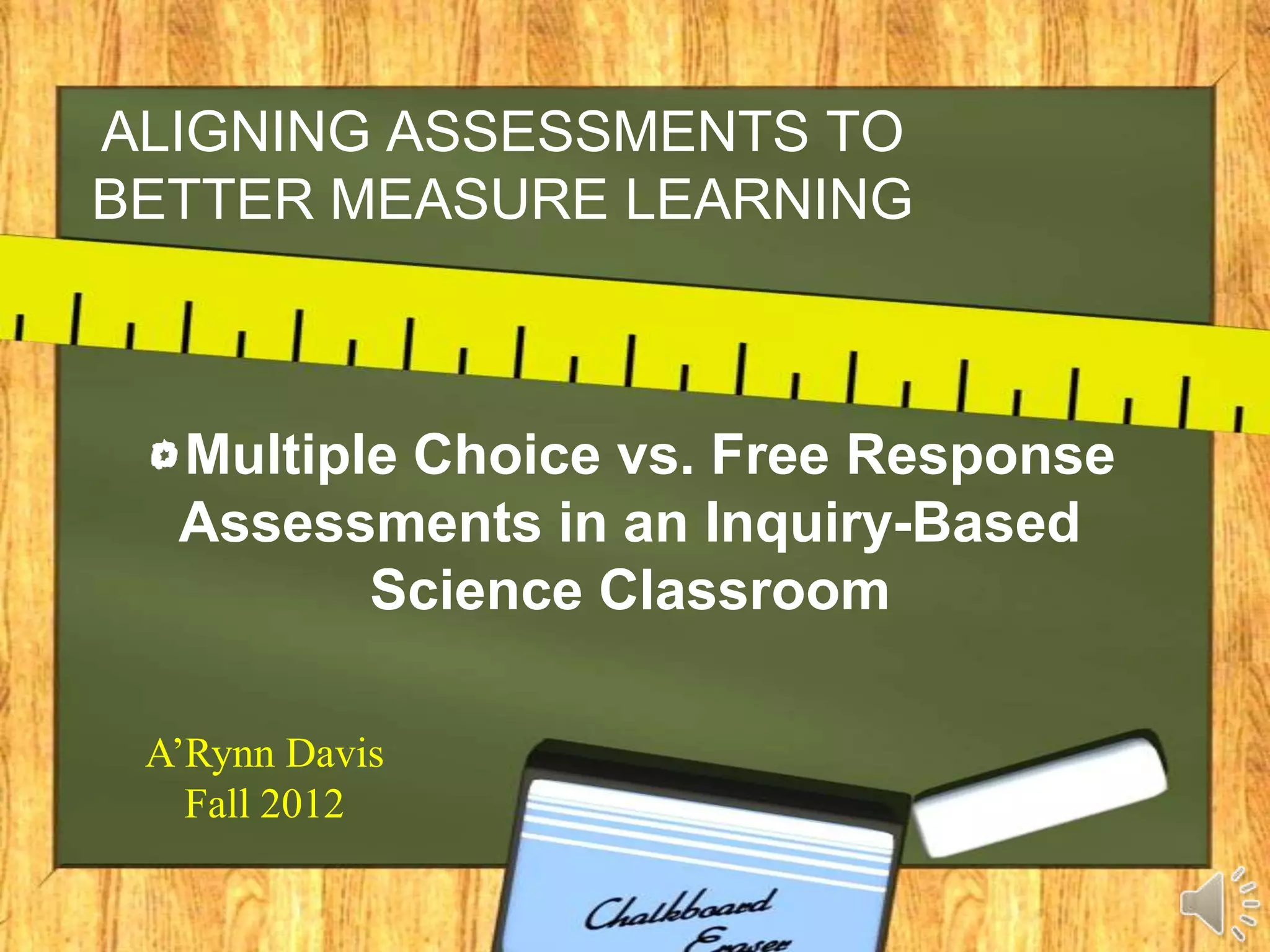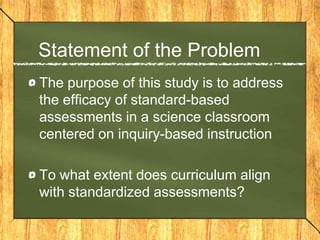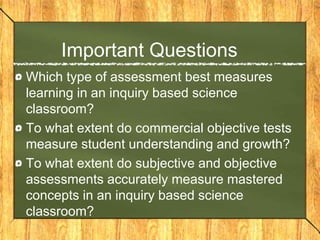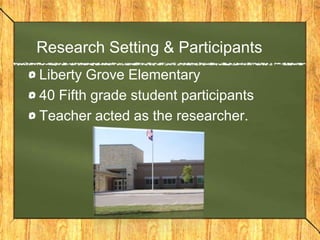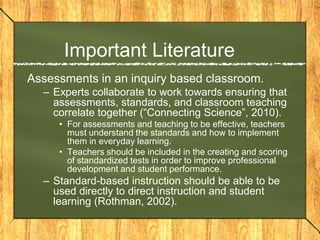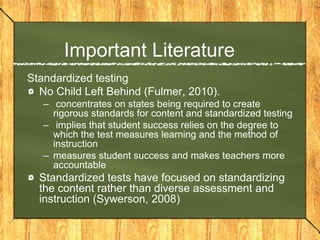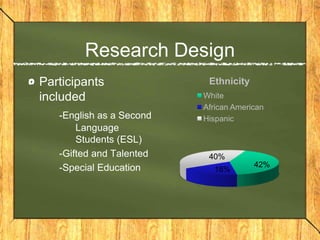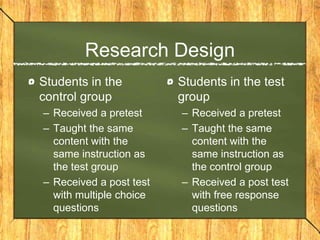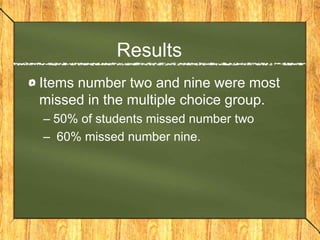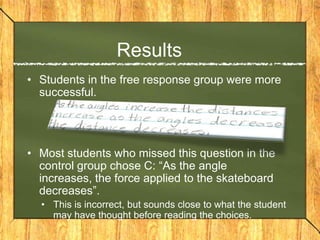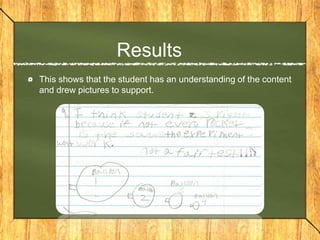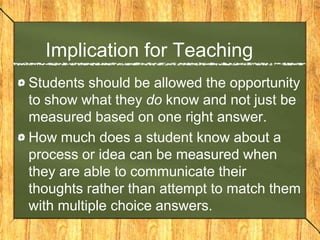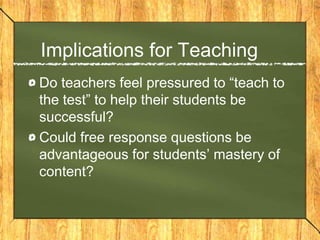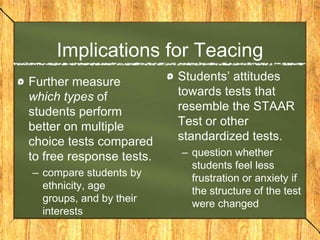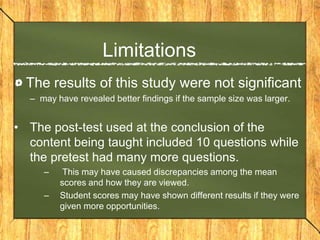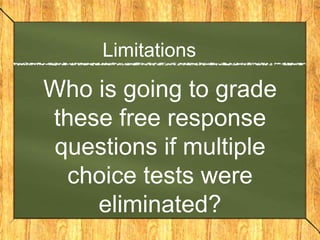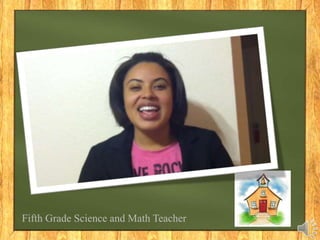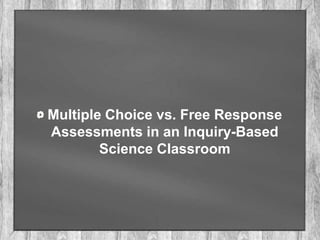This study examined the efficacy of standardized assessments in an inquiry-based science classroom. It compared student performance on multiple choice questions versus free response questions following instruction on the same content. Results showed that students performed better on free response questions, where they could explain their understanding rather than select a single correct answer. The implications are that free response questions may better measure student learning and mastery in an inquiry-based classroom compared to multiple choice. However, the study had limitations such as a small sample size and differences between the pre- and post-tests that were administered.
